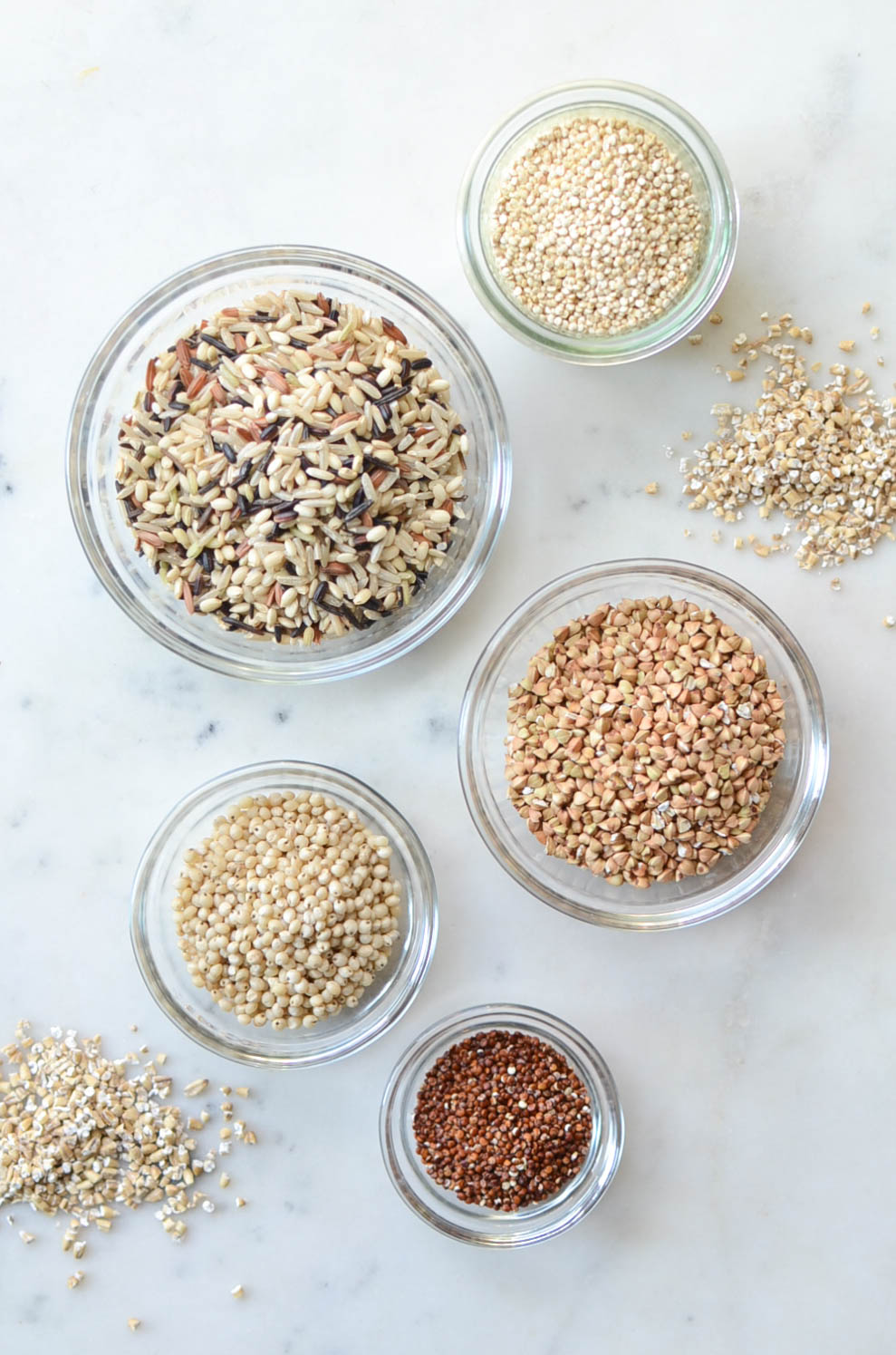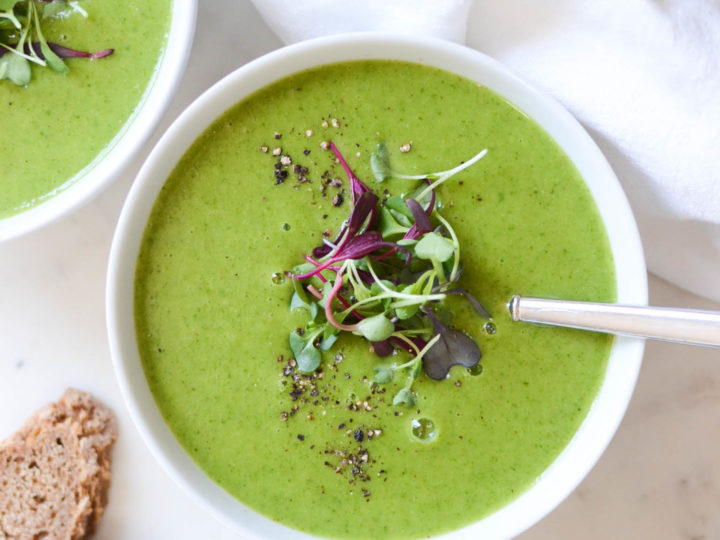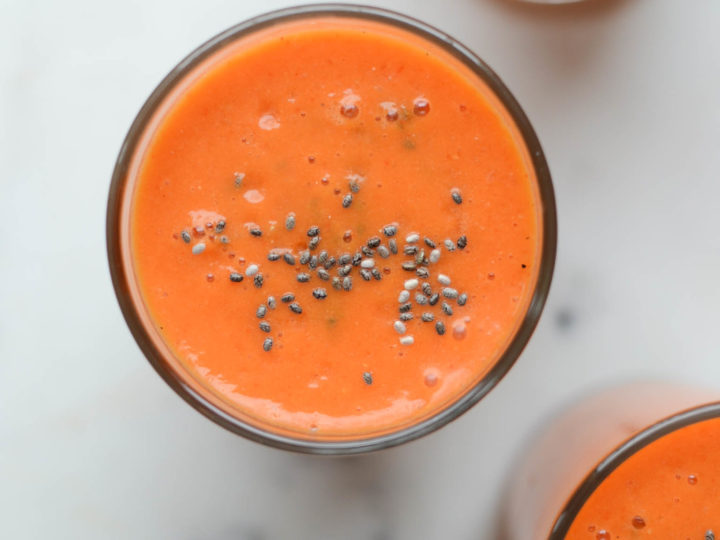
One of my biggest pet peeves when it comes to gluten-free diets is that the majority of people have no idea why they are eating that way or even what it means. Did you know only about 3% of the world population has celiac disease (an autoimmune disorder that can occur in genetically predisposed people where the ingestion of gluten leads to damage in the small intestine) and maybe another 3% have gluten intolerance? If you suspect you have celiac disease, most definitely get tested for it. If you are one of those people eating gluten-free because your sister’s cousin’s friend told you so, then you better read on!
So let’s start with “what is gluten?”. Because you’d be shocked how many people ask me “does rice have gluten?” and “do nuts have gluten?”. Gluten is a family of proteins found in wheat (all types including farro, spelt, einkorn, etc.), barley and rye. There is nothing inherently bad about gluten. If you do not have celiac but it doesn’t sit well with you, you should be asking yourself, “why am I having trouble digesting gluten?”. It may not even be the actual gluten bothering you but the processed junk food that happens to contain gluten. It could also be that the microbes living in your gut are out of whack or you have “leaky gut”. Let’s talk some of the specifics:
INGREDIENTS MATTER: Most gluten-free products that come in a package are just as stripped of nutrition (if not worse) as the wonder bread sitting next to it. I can’t tell you how many people think if something says “gluten-free” then it’s automatically healthy (same with “organic” but that’s another whole post). A product made of pure starch and food additives is no better for you than white bread. If you have to eat gluten free for health reasons, then eat the WHOLE pseudograin and not processed foods. This means whole grain-like seeds like quinoa, brown or wild rice, oats, buckwheat, millet, sorghum, teff and amaranth. NOT tapioca, arrowroot, potato starch, corn starch, white rice, etc.
GLYPHOSATE: You may have heard about how glyphosate, the main ingredient in Round-Up, is heavily sprayed on genetically modified crops such as corn and soy but did you know it is also widely used on conventional grains and legumes as a desiccant? This means farmers spray the chemical on their crops to dry them out (kill them). This allows them to harvest sooner instead of waiting for the weather to cooperate and sometimes produce two harvests instead of one. While this makes more money for the farmers, it is extremely toxic to the people who will be eating the food that has been directly sprayed with this chemical. Not only has glyphosate been linked to cancer, it is extremely damaging to our gut lining. It increases permeability of the gut membrane by damaging the protein structure that holds your gut lining together, basically giving you a “leaky gut”. This leads to food sensitivities because food is entering the blood stream before it has been fully digested.
So before you decide to completely eliminate gluten (I’m not talking about people with celiac here) try eliminating exposure to glyphosate first. Stay away from genetically modified crops which means corn, soy and sugar from sugar beets unless specifically labeled as USDA certified organic or Non-GMO verified. Eliminating processed food is an easy way avoid those ingredients. Buy certified organic grains, beans and legumes. Buying in bulk is actually pretty cheap. Also keep in mind that any animal product that is not certified organic was likely fed GMO crops or other crops that were sprayed with toxic chemicals. This includes farmed fish and even fish caught in locally stocked water. Know where your food is coming from. If you can’t afford organic or grass-fed animal products, well then good, you will be healthier in the long run.
FIBER: The reason eating gluten-free is not healthful in the long term for people who do not have celiac is because eating whole grains has been shown over and over in studies to be beneficial to so many aspects of our health, particularly gut health. Each and every grain has different types of fiber that feed different types of good bacteria in our guts. The more we limit the variety of plants we are eating, the more we limit the diversity and therefore strength of our gut/immune system. For people with sensitivities, it may be helpful to eliminate grains for a short period of time and slowly add them again. The goal should always be to heal the underlying issue and be able to add whole grains back into your diet at some point. Like I said, gluten is not inherently bad, it is our digestion that is compromised. The question should be “why?”. This is very individualized and something I always work on with my clients who have IBS or other recurrent gut issues.
Now to recap, unless you have celiac disease, there is most likely no reason to eat gluten-free. It is extremely rare for people to have a true wheat allergy. Try eating only organic whole grains or grains you know have not been sprayed with glyphosate. Naturally gluten free pseudograins are good too, just in their whole form! Refined grains lose 80% of fiber and nutrients so stick with the whole grain – bran, germ & endosperm! And yes, “refined” includes white sourdough bread which has somehow been touted as a health food. The more intact the grain the better! The smaller the grain particle, the faster they empty out of your stomach, which in turn produces a greater blood sugar and insulin response. So cook the whole wheat berry, or the whole rye or barley and add it to a soup or salad for the best nutrient benefits!
Comments (2)
-
What about whst Dr William Davis and Dr Perlmutter have to say about all grains, not just the usual ones remived in gluten free? How do you explain the reversal of some diseases when eliminating grains?
-
Author
Hi Carol! The people who live the longest without disease all incorporate whole grains in their diets. I encourage you to check out the Blue Zones where this plays out in real life. While the doctors you mentioned selectively site studies to back what they preach, the vast majority of scientific literature does not agree with eliminating whole grains unless you have an autoimmune disease. Whole grains are associated with practically every health benefit you can think of – alleviating hypertension, lower risk of heart disease & diabetes, gut health, etc.
Without knowing specifically what you are referring to when you say “reversal of some diseases”, my guess is that by eliminating grains, those people eliminated most processed food and probably added in nutrient dense whole foods like vegetables, fruit, beans, mushrooms, etc. which would definitely help reverse most disease! Hope that answers your question!
-




